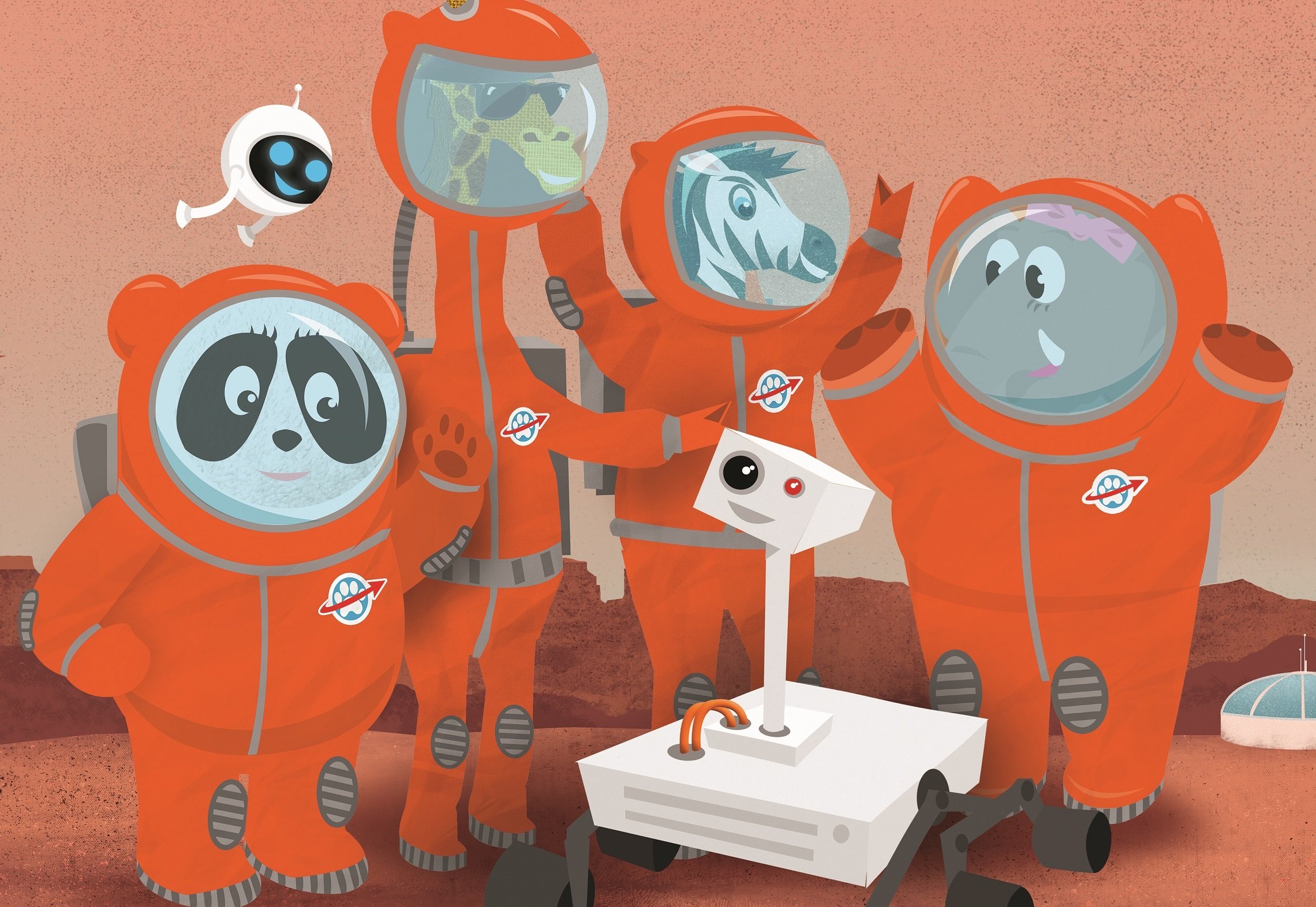Recommended

Right now, there are two operational rovers on Mars sharing information and findings about the planet. But what happens if one of those rovers goes missing? Then it’s time to send a cohort of animal astronauts, of course. At least that’s what happens in a new children’s book by Andrew Rader PhD ’09. The book, Mars Rover Rescue, is his second children’s book, and aside from the animal astronauts—all members of the National Association of Space Animals (NASA)—the book is based in scientific fact. “[It] features interpersonal relationships and drama, while still teaching the latest space science,” Rader explains in a video for the book.
As an aerospace engineer, Rader has long been interested space, but it was during his time as a doctoral student at MIT that he tapped into a passion for outreach and teaching. Rader taught courses through MIT’s Educational Studies Program (ESP), which helped him share his knowledge and passion for space with young students. “I taught these high school students and found out that they really liked learning about things like spacecraft engineering,” Rader says. He taped some of the classes he taught and shared them on his YouTube channel. That channel became the impetus for his first children’s book when the creator of a video featuring a cartoon giraffe rapping about science contacted Rader. “The creator of this video, Galen Frazer, reached out to me to see if I would help promote it,” says Rader, who maintains a popular YouTube channel. But Rader saw a bigger opportunity. “I really liked the video and had always wanted to write a children’s book, so I asked if he wanted to turn the video into a book,” he says. The two then created the predecessor to Mars Rover Rescue, a book called Epic Space Adventure that feature the giraffe.

In his second book, the giraffe—known as MC Longneck—is joined by a diverse cast of characters featuring an elephant, zebra, robot, and more. The group needs to work together to learn how to survive life on Mars while searching for the rover. The challenges that these characters face, like growing food and finding water, are all based in the latest science and knowledge of Mars. Rader—who is open to living on Mars himself—says the book does have a bit of an ulterior motive. “It’s important to get kids interested in science,” he says. “It would be great if they wanted to go to Mars. But if they don’t want to go or work on it, that’s fine—it should to appeal to anyone interested in space.”
Rader, who is a mission manager for SpaceX, has good evidence that once this interest in space is piqued, kids will want to learn more. He still talks with many of the students he taught while at MIT. “I taught an eight-week course years ago, and we still talk. They will reach out and ask questions or we just keep track of each other’s lives,” he says.







